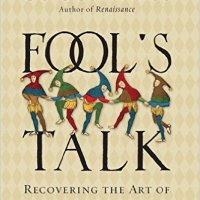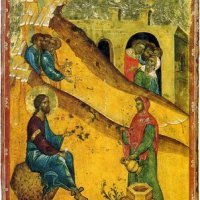 There is another English Bible translation out there gaining readership and popularity in some evangelical circles. It’s simply called “The Passion Translation” (TPT). I’ve been asked a number of times whether this is a translation worth using. After reviewing TPT’s own website, marketing material, history of composition, and translation philosophy, I’ve concluded there are enough problems associated with TPT that I cannot recommend it. Here are a few of my reasons.
There is another English Bible translation out there gaining readership and popularity in some evangelical circles. It’s simply called “The Passion Translation” (TPT). I’ve been asked a number of times whether this is a translation worth using. After reviewing TPT’s own website, marketing material, history of composition, and translation philosophy, I’ve concluded there are enough problems associated with TPT that I cannot recommend it. Here are a few of my reasons.
- TPT is essentially an English paraphrase from the original languages (Hebrew, Greek, and the very small portions of the Bible written in Aramaic). It is quite a bit more thought-for-thought than the NIV, which I think strikes a decent balance between dynamic equivalence (thought-for-thought) and formal equivalence (word-for-word). Some wouldn’t even consider TPT a true “translation”, but rather an interpretation. Translation is an art and science. Any bilingual person understands translation is never the result of merely adhering closely to a formula. A strict word-for-word translation is in reality impossible. And translators who aim for the strictest possible word-for-word translation usually produce incomprehensible gibberish. Thus all translation must engage in a limited amount of interpretation to achieve intelligibility, readability, and literary equivalence. But the art and science of rendering a text into a target language ideally seeks to employ as little interpretation as possible. Translation is the task of the linguist. Interpretation is the task of the reader. TPT seems to liberally engage in interpretation.
- TPT is a one-man translation effort by Dr. Brian Simmons, a former missionary, linguist, minister, author, and Bible teacher. There were no checks and balances in the translation process. No matter how competent a translator is, a translation is always more accurate with the insights and corrections from others. Therefore in this respect TPT is like Eugene Peterson’s The Message. Neither is widely accepted as an accurate translation.
- TPT is also like The Message in its idiomatic, paraphrastic style of translation. Like the Message, TPT may be an interesting personal devotional read at best, but it is not a good choice for study or public ministry use because it cannot be called “The Word of God.”
- TPT privileges the Aramaic translation of the Bible as a primary source text, putting it on the same level as the original Hebrew and Greek when translating. As a philosophy of translation decision, this is irresponsible no matter how sincere. Frankly it’s just weird. Say a bilingual English-Spanish speaker heard your spoken English message, understood you with complete accuracy, and wrote it down in Spanish for Hispanics to understand. Then someone else came along several generations later and translated that Spanish text back into English. Would you be more confident that your spoken message was accurately conveyed in the Spanish text or the English text?
- As a translation that weighs heavily in the thought-for-thought direction on the translation philosophy spectrum, TPT necessarily devalues the actual words of Scripture. Jesus taught the doctrine of Scripture’s verbal plenary inspiration (Mt 5:17-18; Lk 20:37-38; Jn 10:34-36), but a Bible version like TPT that purports to be a translation worthy of “word study” goes a long way to undermine that doctrine. The translator believes the truth of Scripture is found in its “meaning”, not its “words.” This is simplistic reasoning. Meaning is conveyed through words. Therefore the actual words of God matter. Scripture is not “inspired” in an artsy, heart-uplifting, meaningful-to-me sense of the term (although Scripture is an artful masterpiece, it ought to lift your heart in worship of God, and it has proven meaningful to millions if not billions). Scripture is truly “expired” (breathed out) by God (2 Tim 3:16-17).
Here is a webpage of FAQs about the translation, written by proponents of TPT. Read between the lines and ask yourself whether its reasons for promoting The Passion Translation as another good Bible version are sound. I don’t think so.














Thanks for this Brian. While it was unlikely we would get this translation anyway, we are going to get a bible for each of our kids soon, so any discussion of translations is helpful.
Pingback: What's with the Aramaic texts? - Reading the Passion Bible
Leaving aside the apparent absurdity of translating Paul’s letters (notably) from an Aramaic translation of the originals, I believe I have established that Simmons is not actually translating from the Peshitta when he claims to be. Rather, he is working from English translations of the Peshitta and, what’s worse, he makes much use of the ‘Aramaic Bible’ of Victor Alexander, who is a ‘Felliniesque’ film-maker and, apparently, a fantasist. Alexander claims to be translating from a Sacred Scribal Language – known only to himself it seems – and is thus able, in effect, to change his text at whim. I have documented this at http://theriveroflife.com/2017/03/19/brian-simmons-sid-roth-the-passion-anti-translation-and-ephesians-5-22-submit-or-be-tenderly-devoted/ and the following two posts. Andrew
I’ve since come to the reluctant conclusion that Brian is not translating at all – except a few individual words. See http://theriveroflife.com/2017/11/29/is-the-passion-translation-actually-a-translation-at-all/ Andrew
Andrew,
Your work on TPT is very helpful. I’ve also since discovered that TPT is a “rising star” translation in the NAR movement. I wonder how much Simmons’s aberrant theology has influenced his work in TPT? You don’t need to take that as another investigative assignment. ;-)
Brian, thanks for the encouragement. This identification of certain parts of the church as NAR puzzles me somewhat. I recognise what some call the restorationist movement from the 1950s with Arthur Wallis in England and the so-called house church movement and so on. Personally I am in agreement with most of what they said, including the influence of Watchman Nee and so on. Derek Prince was excellent in most respects in my opinion. They believed in present day apostles and prophets from Ephesians 4.11, and elsewhere, as I myself do. One may have a different opinion, but I find it hard to see how this position can be considered unscriptural. I guess the NAR tend to be post or a-millenial, whereas Nee and Prince were both pre-millenial, as I am, and this (post- or a) can be associated with a church-ruling-on-the-earth type of theology, which has its dangers. But Jonathan Edwards and many others believed in the church bringing in the millenium, if I am not mistaken, so this in itself is not necessarily too destructive.
The thing about being open to the gifts of the Holy Spirit, as I am, is that it is very common to be misled. Our main protection is the holy scriptures. In a way it’s because I am open to God speaking to me personally and to His church in prophecy and revelation that I am all the more passionate about preserving the holy scriptures in as accurate a form as possible, in the originals and in translation.
Brian’s agenda seems to be to promote worldliness in all its aspects. He is actually opposed to the restorationist movement – as I understand it – because he replaces ‘elders’ (πρεσβύτεροι) by ‘pastors’ in 1 Timothy 5.17 and 19. Then in 1 Timothy 5.22 he makes the warning about hasty laying on of hands apply to these ‘pastors’, with no warrant (μηδενὶ [not] anyone). Then he starts verse 24 with ‘There are some who seek ordination’, which is completely made up. In 2 Timothy 2.2 he has ‘faithful leaders’ instead of ‘faithful men’ (πιστοῖς ἀνθρωποῖς), and one feels that he may be promoting the current tendency to reintroduce a clergy-laity divide, with pastor-led churches and domination by leaders with the platform and microphone.
More than anything, Simmons promotes feminism, which may be why he is receiving favour in some quarters. In 1 Timothy 2.12 he has ‘I don’t advocate that the newly converted women be the teachers in the church’, which is shameless, and to my mind constitutes an outright rebellion against the Lord.
I hope this isn’t too long, and that you will bear with me if it is.
Andrew
Andrew,
Thanks for your thoughtful comment. I’m always glad to meet people thinking carefully through the Bible. I’ve got personal experience with NAR-influenced churches, so the particular label makes sense to me because I see the clear differences between “charismatic” and “NAR”. I’ve blogged about this a couple times recently.
Blessings,
Brian